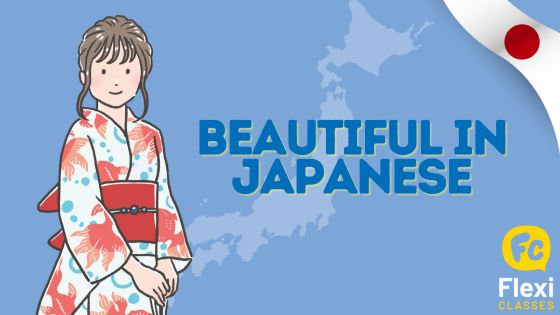Japanese Words and Phrases for Encouragement
Understanding Japanese Words and Phrases for Encouragement

In all languages, words of encouragement have the power to inspire and make people feel positive.
The Japanese language has several unique expressions of encouragement, rooted in a culture that values respect and courtesy.
Whether you are supporting a friend, cheering on a colleague, or encouraging yourself, understanding these expressions can be very helpful in improving your ability to communicate in Japanese.
In this article, we’ll take a look at some of the most popular Japanese expressions used to encourage and cheer someone on.
Japanese Words and Phrases for Encouragement || General Expressions
Japanese Words and Phrases for Encouragement || Expressions for Formal Occasions
Japanese Words and Phrases for Encouragement || Encouragement Based on Proverbs
Japanese Words and Phrases for Encouragement || FAQs
Japanese Words and Phrases for Encouragement || General Expression
がんばれ!/がんばってください!
Go for it!ファイト!
Do your best!
The most commonly used encouragement is probably がんばれ ganbare! This is probably the most common form of encouragement. More politely, Ganbatte kudasai! is also used.
Ganbaru is written 頑張る がんば in kanji.
頑 がん gan means stubborn or inflexible, and 張る ばる baru is a word which has the connotations of prodding, tensioning, and increasing tension. The word conjures up images of stiffening the body and engaging in hard labor.
Perhaps these expressions came from an agrarian society, where people were tirelessly but silently engaged in farm work.
The expression ファイト faito, a Japanese reading of the English word fight, is also used.
In the Showa period (1926-1989), a commercial for a nutritional drink used the phrase ファイト、一発! いっぱつ Fight, Ippatsu! and many Japanese people are familiar with this phrase. ファイト! has the nuance of exerting energy from within the body to face difficulties.
The above expressions were most commonly used in the past, but in recent years, there has been a tendency in Japanese society to avoid saying “がんばれ Ganbare” or “ファイト Fight! to encourage others.
With the end of rapid economic growth and a prolonged recession, the number of people willing to work hard and stay positive is dwindling.
Today, more and more people want to live modestly and in their own way without becoming very wealthy, rather than aiming for success through hard work and hardship.
Perhaps reflecting this situation, some people feel that the expression “ganbare” forces others to make an unreasonable effort, so the following expressions are preferred:
| JAPANESE | ROMAJI | ENGLISH |
| 応援しているよ おうえんしているよ | ouen shiteiruyo | I’m rooting for you |
| きっとうまくいくよ | kitto umaku ikuyo | It’s going to be fine |
| 無理しないで むりしないで | muri shinaide | Take it easy |
| 気楽にいこう きらくにいこう | kiraku ni ikou | Take it easy |
| なんとかなるよ | nantoka naruyo | It’s going to work |
| 元気だして げんきだして | genki dashite | Cheer up! |
It seems that today, people prefer to use expressions that do not use the other party as the subject, but rather use the format that they are supporting the other party and hope that the situation will turn around.

This may reflect the fact that people have lost the sense of being able to change circumstances through personal efforts, and that an increasing number of people believe that things are not always as they wish them to be.
Therefore, words like 気楽 きらく kiraku are preferred. This can be translated as easygoingness .
気 き ki means feeling or mood, and 楽 らく raku means easy, comfortable, careless.
This term has the nuance of not thinking to much about the situation, but letting things happen and enjoying oneself. Such kind of encouragement is welcomed these days.

Are the Japanese Always Apologetic? How to Say Sorry in Japanese
Understanding the Variations of Sorry in Japanese || Casual and Formal Expressions As you might’ve guessed, today’s blog post is all about how to say “Sorry” in Japanese. Apology and humility play an important role in Japanese culture. In the…
Japanese Words and Phrases for Encouragement || Expressions for Formal Occasions
As is the case in English, the expressions ganbare and faito are generally not used with superiors or superiors. The following expressions are polite to use with superiors and superiors:
ご成功をお祈りいたしております。
ごせいこうをおいのりいたしております。goseikou wo oinori itashite orimasu.
We wish you the best of luck.

ご発展を祈念しております。
ごはってんをきねんしております。gohatten wo kinen shite orimasu.
We wish you continued growth and success.
今後のご活躍を祈念しております。
こんごのごかつやくをきねんしております。kongo no gokatsuyaku wo kinen shite orimasu.
We wish you continued success in your future endeavors.
Especially in business situations, it is useful to remember words with positive nuances such as:
成功
せいこうseikou
Success
発展
はってんhatten
Development
In Japanese, compared to English, the use of positive words in the abstract tends to be preferred over personal actions in showing respect.
Expressions in which the subject is the other party’s organization rather than the other individual are also frequently used.
貴社のますますの発展をお祈り申し上げます。
きしゃのますますのはってんをおいのりもうしあげます。kisha no masumasu no hatten wo oinori moushi agemasu.
We wish your company continued growth.
In everyday situations, おつかれさまです otsukaresamadesu can also be used as a form of encouragement.
For example, otsukare sama desu can be used when you are about to start work after a work meeting. This can be used whether the person is your boss or a subordinate.

From Kirei to Uruwashii: How to Say Beautiful in Japanese
Beautiful in Japanese // Top Japanese Words for Expressing Beauty in Modern and Classical Ways Whether you’re looking at a beautiful person or a beautiful piece of art, it’s nice to spread positivity and say your thoughts out loud! One…
Japanese Words and Phrases for Encouragement || Encouragement Based on Proverbs
Quoting proverbs is another common way to encourage others. Here are some proverbs that can be used to encourage others.
石の上にも三年
いしのうえにもさんねんishi no ue nimo sannen
Three years on a stone
七転び八起き
ななころびやおきnanakorobi yanoki
Ups and downs in life

“Three years on a stone” is a proverb frequently used to explain the importance of perseverance and continuity. It is said to have been said by a monk, who is also known as the founder of Zen Buddhism, and almost all Japanese people are familiar with it.
In Japan, it is considered a good idea to work for the same company for at least three years. This is probably because of this proverb.
In Japan, the idea of lifetime employment is still strong, and although the number of people changing jobs is increasing, it is not considered a good idea to change jobs too often.
Nanakarobi yaoki means to fall down seven times and get up eight times, and it expresses the way we face up to difficulties without being discouraged.
You can use this expression to say that one should face up to challenges without stopping trying.
人生七転び八起きだよ
じんせいななころ びやおきだよjinsei nanakorobi yaoki dayo
Life is full of ups and downs
Encouraging expressions also reflect the culture and the thinking of the times. If you can master the use of encouraging expressions in Japanese, your Japanese language skills will improve further.
Share your experience with using Encouragement in Japanese here!
Japanese Words and Phrases for Encouragement || FAQs
What is a common expression of encouragement in Japan?
A common expression of encouragement is “ganbare.”
What kind of encouragement do you prefer these days?
In recent years, expressions of hope that the situation will improve, rather than individual efforts, are preferred.
What can I say to thank someone for their hard work at work?
You can say “ おつかれさまです otsukare sama desu.”
Why is it currently considered better not to say “ganbare”?
This is because the expression evokes the idea of exerting oneself through a series of impossible efforts, which is not in keeping with the current situation where it seems that the situation is beyond the control of individuals.
What are some proverbs for encouragement?
“石の上にも三年[いし]ishi; [うえ]ue; [さんねん]san nen”, “七転び八起き[ななころ]nanakorobi; [やお]yaoki.”

Places in Japanese // 100+ Common & Useful Words (Beginner)
We teach you common but useful words about places in Japanese. Hospital, school, bank.. We cover them all. Your vocabulary skills will be greatly enhanced.
Want More From LTL?
WANT TO LEARN JAPANESE? Check out our online Japanese courses here.
We offer a 7-day free trial to all new students where you can study 24/7.
What about studying Japanese in Japan instead? We’ve got your back. Our Japanese courses in Tokyo can either be taken in small groups of no more than 5 students or individually for a more tailored experience.
We even offer incredible homestay experiences in Tokyo as well.
Come and be a part of this amazing community.










